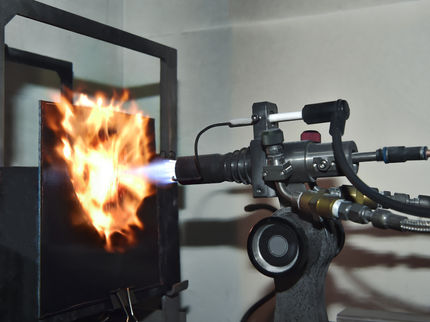SABIC Innovative Plastics Announces VDE Certification of 10 Flame-retardant Materials for Household Appliance Applications
Advertisement
To help household appliance manufacturers accelerate time to market by streamlining regulatory approvals, SABIC Innovative Plastics announced a full portfolio of flame-retardant materials that have achieved certification from VDE (Verband der Elektrotechnik Elektronik Informationstechnik e.V), a German testing organization. Because these 10 materials have successfully passed VDE's stringent testing for compliance with the IEC 60335 standard for unattended household appliances, particularly the recently introduced glow wire ignition test (GWIT) for flammability, manufacturers do not have to spend time and resources on additional testing of plastic parts. Further, the breadth and depth of this portfolio, featuring many halogen-free grades, provides easy, one-stop shopping. SABIC Innovative Plastics' investment in proactive certification benefits customers by simplifying and shortening the product development process.
"Passing the new glow wire ignition test is very challenging for conventional thermoplastics because many self-ignite around the test temperature," said Arthur van Dijk, industry manager Electrical and Lighting, SABIC Innovative Plastics. "By drawing on the legacy of SABIC Innovative Plastics' exceptional technical expertise, we have been able to engineer nearly a dozen grades that meet this tough safety standard. By choosing from our portfolio, appliance manufacturers will have one less hurdle to overcome in getting their products to market."
The different IEC 60335-compliant grades include amorphous and semi-crystalline materials. They offer a variety of properties, including thick- and thin-wall molding capability, high heat resistance, transparency or opacity in a range of colors, chemical resistance, hydrolytic stability, and a range of CTI (Comparative Tracking Index) values from 175V to 600V. Most offer flame retardance without the use of brominated or chlorinated additives - materials that can be harmful to the environment - thus meeting the requirements of the European Union's (EU) Restriction of Hazardous Substances (RoHS) and Waste Electrical and Electronic Equipment (WEEE) directives. Further, all grades have a full listing in the Underwriters Laboratory (UL) yellow card system.
Most read news
Topics
Organizations
Other news from the department research and development

Get the chemical industry in your inbox
By submitting this form you agree that LUMITOS AG will send you the newsletter(s) selected above by email. Your data will not be passed on to third parties. Your data will be stored and processed in accordance with our data protection regulations. LUMITOS may contact you by email for the purpose of advertising or market and opinion surveys. You can revoke your consent at any time without giving reasons to LUMITOS AG, Ernst-Augustin-Str. 2, 12489 Berlin, Germany or by e-mail at revoke@lumitos.com with effect for the future. In addition, each email contains a link to unsubscribe from the corresponding newsletter.
































































